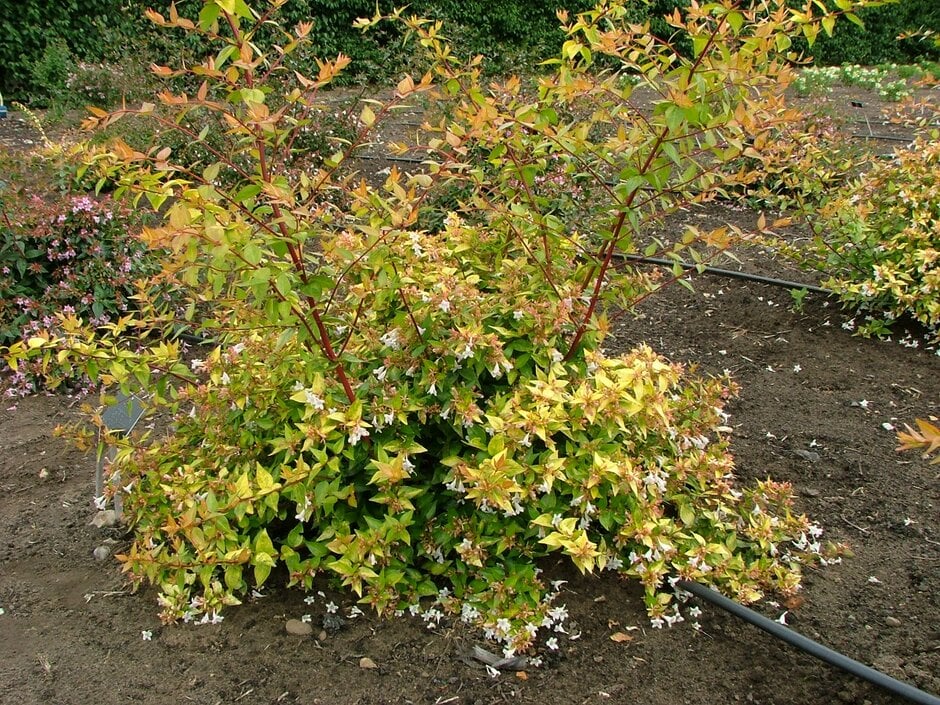Abelia × grandiflora 'Gold Spot' (v)
abelia 'Gold Spot'
A semi-evergreen shrub with arching stems reaching to around 2-3m high. Golden-yellow spring foliage turns yellow-green before becoming mid-green by late summer. Clusters of lightly-scented white flowers with a pale pink blush are borne over a long period from summer into autumn
Size
Ultimate height
1.5–2.5 metresTime to ultimate height
10–20 yearsUltimate spread
1.5–2.5 metresGrowing conditions
Moisture
Moist but well–drainedpH
Acid, Alkaline, NeutralColour & scent
| Stem | Flower | Foliage | Fruit | |
| Spring | Gold Green Yellow | |||
|---|---|---|---|---|
| Summer | White Pink | Green Yellow Variegated | ||
| Autumn | White Pink | Green | ||
| Winter | Green |
Position
- Full sun
- Partial shade
Aspect
South–facing or West–facing or East–facing
Exposure
ShelteredDrought resistance
Yes Hardiness
H5Botanical details
- Family
- Caprifoliaceae
- Native to GB / Ireland
- No
- Foliage
- Semi evergreen
- Habit
- Bushy
- Genus
Abelia can be deciduous or evergreen shrubs or small trees, with paired or whorled leaves and axillary or terminal clusters of funnel-shaped or trumpet-shaped flowers in summer and autumn, sometimes with conspicuous, colourful calyces
- Name status
Accepted
How to grow
Cultivation
Easy to grow in fertile, well-drained conditions, although not fully hardy; requires a sheltered, sunny position, in colder areas a south or west-facing wall would suit
Propagation
Propagate by softwood cuttings in early summer or semi-hardwood cuttings in late summer
Suggested planting locations and garden types
- City and courtyard gardens
- Cottage and informal garden
- Low Maintenance
- Flower borders and beds
- Wall side borders
Pruning
Pruning group 8. May need hard pruning ( Pruning group 6) every 3 to 4 years
Pests
Generally pest-free
Diseases
May be susceptible to honey fungus
Get involved
The Royal Horticultural Society is the UK’s leading gardening charity. We aim to enrich everyone’s life through plants, and make the UK a greener and more beautiful place.
